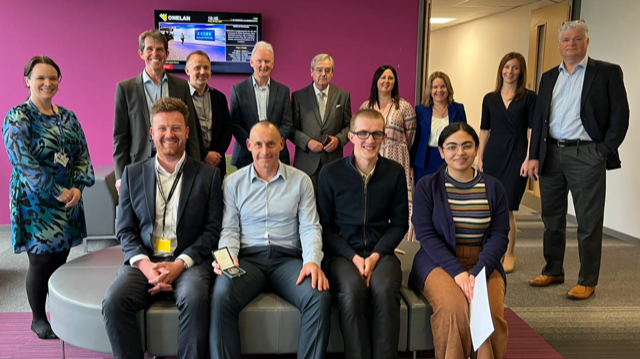
The Glasgow Royal Infirmary, renowned at the forefront of medical achievements, announced the winners of the St. Mungo’s research awards at an event on Friday, 26 May.
Held in the hospitals Lister building for the first time since the Covid-19 pandemic, the event recognises the exceptional researchers that have made groundbreaking contributions to medical science and hope to improve healthcare outcomes for patients across the world.
This year’s winners were from the wide range of medical specialities based at the hospital. The event highlighted the exceptional work undertaken at the Glasgow Royal Infirmary, which this year was again voted as the best hospital in Scotland by Newsweek.
Presented by the NHSGGC Chair, Professor John Brown CBE, the St. Mungo’s Medal was awarded to Dr Richard Lowrie for his teams work on the PHEONix trial and homeless outreach.
Speaking at the event, Prof Brown, said: “Glasgow Royal Infirmary has always been a leading player in delivering innovation and ground-breaking research and these awards are a testament to the hospital’s ongoing commitment to pushing the boundaries of medical science.”
“It was an honour to present the winners with these prestigious awards and a special mention goes to Dr Lowrie who received the St. Mungo’s Medal for the best overall presentation.
“The St. Mungo’s award recognises outstanding work in medical science research. This research will help us to reshape the way we deliver care and provide us with opportunities to improve the lives of people worldwide.
“I am immensely proud of all of those who dedicated their time to submit research proposals, especially when I consider all the other challenges they face in these difficult times for the NHS.”
This year’s event was coordinated by Prof Adrian Stanley and Dr Sharon Mackin, with many GRI Consultants and University colleagues helping to mark and judge the research submissions.
Prof Stanley said: “It was fantastic to again have a very high number of research abstracts submitted to the meeting from the wide spectrum of specialities at GRI. We had more than 60 submissions this year, from which the judging panel chose the best nine for oral presentation and another 37 for poster presentation.
“The abstracts were presented by a mixture of consultants, junior doctors and students, with the prize-winners in six categories chosen by a panel consisting of senior University and NHS clinical staff.
“In addition to the St Mungo’s medal for the best overall presentation, prizes were also awarded for the best clinical and best pre-clinical research, the best student submission and the best poster.
“The annual St Mungo’s research meeting is extremely important both to support the high level of research at GRI and to encourage and inspire junior doctors and students in this important aspect of medical work.
“We congratulate Dr Lowrie and the other prize winners on their excellent work and look forward to next year’s meeting.”
